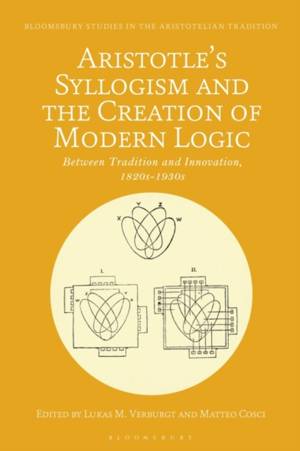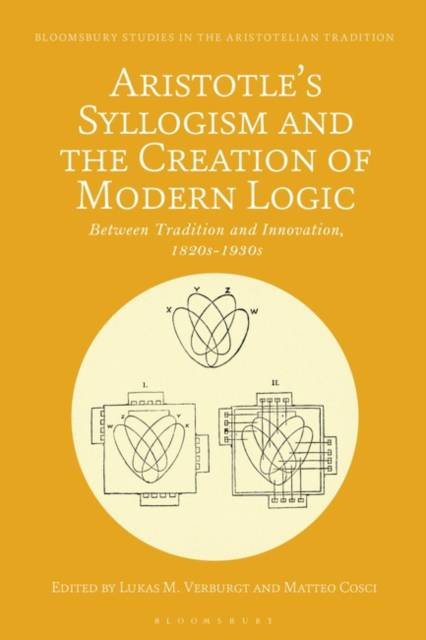
- Afhalen na 1 uur in een winkel met voorraad
- Gratis thuislevering in België vanaf € 30
- Ruim aanbod met 7 miljoen producten
- Afhalen na 1 uur in een winkel met voorraad
- Gratis thuislevering in België vanaf € 30
- Ruim aanbod met 7 miljoen producten
Zoeken
Aristotle's Syllogism and the Creation of Modern Logic
Between Tradition and Innovation, 1820s-1930s
€ 220,45
+ 440 punten
Omschrijving
Offering a bold new vision on the history of modern logic, Lukas M. Verburgt and Matteo Cosci focus on the lasting impact of Aristotle's syllogism between the 1820s and 1930s.
For over two millennia, deductive logic was the syllogism and syllogism was the yardstick of sound human reasoning. During the 19th century, this hegemony fell apart and logicians, including Boole, Frege and Peirce, took deductive logic far beyond its Aristotelian borders. However, contrary to common wisdom, reflections on syllogism were also instrumental to the creation of new logical developments, such as first-order logic and early set theory. This volume presents the period under discussion as one of both tradition and innovation, both continuity and discontinuity. Modern logic broke away from the syllogistic tradition, but without Aristotle's syllogism, modern logic would not have been born. A vital follow up to The Aftermath of Syllogism, this book traces the longue durée history of syllogism from Richard Whately's revival of formal logic in the 1820s through the work of David Hilbert and the Göttingen school up to the 1930s. Bringing together a group of major international experts, it sheds crucial new light on the emergence of modern logic and the roots of analytic philosophy in the 19th and early 20th centuries.Specificaties
Betrokkenen
- Uitgeverij:
Inhoud
- Aantal bladzijden:
- 320
- Taal:
- Engels
- Reeks:
Eigenschappen
- Productcode (EAN):
- 9781350228849
- Verschijningsdatum:
- 23/02/2023
- Uitvoering:
- Hardcover
- Formaat:
- Genaaid
- Afmetingen:
- 156 mm x 234 mm
- Gewicht:
- 616 g

Alleen bij Standaard Boekhandel
+ 440 punten op je klantenkaart van Standaard Boekhandel
Beoordelingen
We publiceren alleen reviews die voldoen aan de voorwaarden voor reviews. Bekijk onze voorwaarden voor reviews.







